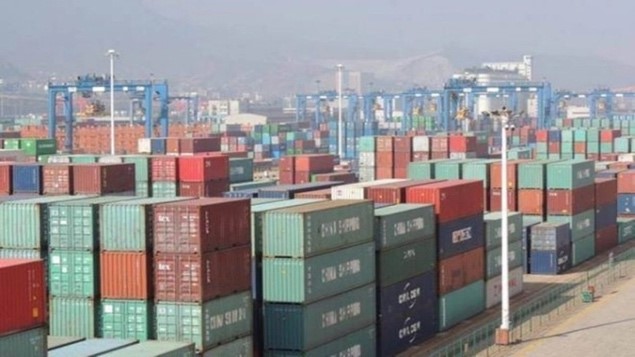Description

Disclaimer: Copyright infringement not intended.
Context
- The US has proposed that advance notices of tariff changes and export restrictions be considered by the 14 member-nations of the Indo-Pacific Economic Framework for Prosperity (IPEF).
- India is not very comfortable with the idea and has sought industry’s views.
Background
- The IPEF, which accounts for 40% of world’s economic output and 28% of trade, came together in 2022, following the challenges thrown by the pandemic.
- The forum seeks to go beyond traditional free trade agreements and work on the issues of supply chains, clean energy, decarbonisation, infrastructure, and tax and anti-corruption.
- India has kept itself out of the trade part of the framework so far.
- Under the supply chain tract of the negotiations, the US has proposed that IPEF members should give advance notices before changing their import tariffs or putting restrictions on exports.
- New Delhi has voiced discomfort with the proposal and has sought the view of domestic industry.
.jpeg)
The pros of advance notice
- Advance information eliminates surprises, gives time for adjustment and minimises losses of trading partners.
For entities with goods in transit or that are holding stock
- As it is seen with sudden change in tariffs and restrictions, entities with goods in transit or that are holding stock either make huge losses or profit.
For the companies
- At the company level, it can upset all calculations and business plans.
- At the very least, contracts have to be renegotiated at the operational level.
For the country
- Sometimes export restrictions can go as far as disturbing the macro-economic indicators of a country or even the entire world.
- Few countries have the resilience and economic depth to bear such shocks
- For example, if a big supplier country of, say, food or fuel curbs or bans exports, it leads to shortages and sudden jump in prices globally.
- The extent of the harm these shocks can cause have been on full display during the pandemic and later during the war in Ukraine.
The cons of advance notice
- Advanced knowledge about tariffs and export controls carries with it the capacity to create problems of a different order. For instance, disruptions and opportunities for extracting undue gains will emerge.
- It might also expose the country putting tariffs and restrictions to pressure from fellow members of the IPEF.
- This will put limits on the powers of the member-countries to pursue an independent tariff policy to manage local shortage or glut and also their ability to formulate incentives for the different sectors of their economy.
Impact on India
- Given it is not in the trade pillar of the IPEF, advance notices on tariff changes and export curbs shouldn’t have mattered.
- But these will creep into the supply-chain pillar and affect India’s interests.
Current system of tariff notices
- Taxation and regulation of trade is a sovereign right.
- Every country decides independently how its taxation policy is conducted.
- Countries may agree to accept some limits on their taxation and trade regulating powers through negotiations with other countries, but for that, they would want to be fairly compensated.
- This could be in the form of reciprocal curbs that the countries they are negotiating with may agree to, or through other support.
- In bilateral and multilateral trade agreements, when countries change tariffs within the limits set in the pacts, they inform other members of the grouping.
- All WTO members notify the global trade regulating body of the changes that they have made in their tariffs.
- However, that is done post facto, after the tariff has been changed.
- What the US is trying to do at IPEF is entirely new.

Challenges
- Getting all 14 members to agree to cede even slight control over their respective policy space will be an uphill task, looking at the history of trade negotiations.
- Each country fiercely guards its space for policy formulation while trying to get the maximum while giving out the minimum.
MUST READ ARTICLES:
Indo Pacific Economic Framework: https://www.iasgyan.in/daily-current-affairs/indo-pacific-economic-framework-27
|
PRACTICE QUESTION
Q) IPEF will advance resilience, sustainability, inclusiveness, economic growth, fairness, and competitiveness for the economies. Critically Analyse. (250 words)
|
https://www.financialexpress.com/economy/explainer-ipefs-advance-tariff-notice-proposal/3089070/









